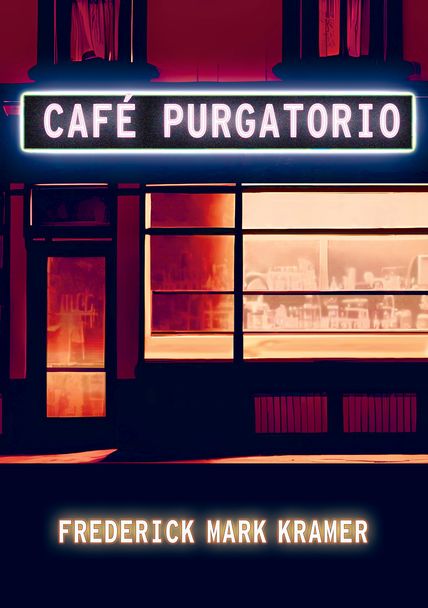
At the funeral of his old friend Jeff, who has committed suicide, Simeon, a poet in New York City, reencounters his old lover Liliana, who had also been Jeff’s girlfriend and whom he has not seen for thirty years. Over drinks at the bar of the nearby Café Purgatorio, a long conversation ensues, trying to make sense of their three youths and what followed from them, again and again twisting together and pulling apart the circular trail of their steps and missteps. The more obsessively these weltering stories deflect “the one deep thought"—which, perhaps, it finally faces in an unforgettable, heartbreaking revelation—the more it suggests a luminous ground independent of their struggles and regrets.
Café Purgatorio is a love song to life: its aspirations, falling-shorts, and haunting losses. It is also an intimate, moonlit portrait of New York City itself in its beauty, its humanity, and its terror.
Notices
“Reading Frederick Mark Kramer’s novels is an experience that is unique in literature, and Café Purgatorio is one of his best. The experience is akin to sitting in a train and hearing someone in the seat behind you explaining how they came to be who they are, one of the most interesting strangers you could hope to meet. But you remain in your seat, attentive, afraid to speak or move because you don’t want to break the spell or interrupt this amazing storyteller, who moves from innerworld to outerworld and back again with the grace of a dancer.”
—Eckhard Gerdes, author of The Chronicles of Michel du Jabot
“It’s after the funeral. The narrator’s old, estranged pal Jeff is dead, and the narrator decides to go for a beer at … where else? … Café Purgatorio with Liliana, a woman both men loved when they were young. Lives unfurl in Café Purgatorio. And there are other surprises as well. Not just in the plot. This bold piece of writing will also take you right to the edge of what is possible in the English language—and sometimes beyond. It’s a fine book, exciting and readable from beginning to end, honest and not easily forgettable.”
—P.J. Blumenthal, Der Sprachbloggeur
